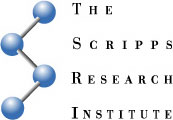

|






|
Marianne Manchester
Associate Professor
Department of Cell Biology
TSRI - 1993
Joint Appointments
Center for Integrative Molecular Biosciences
Education
Ph.D., University of North Carolina, 1992
Awards & Activities
Associate Editor/Opinions Editor, PLoS Pathogens; Editorial Board, Nanomedicine; Associate Editor, BioMEMS and Biomedical Nanotechnology
Research Focus
Viruses as tools for understanding pathogenesis, and developing antivirals, vaccines and anti-tumor agents.
Research Interests:
Current treatments for cancer typically employ chemotherapies that have severe adverse effects. The requirement for the patient to withstand the toxic effects of treatment often limits its effectiveness. Further, there are many promising anti-cancer compounds that are highly effective in vitro but are too toxic to be used in vivo.
The ability to specifically target therapies to the site of a developing tumor, while avoiding healthy tissue, is an important goal for cancer research. Similarly, there is a tremendous need to identify, image, and monitor tumors particularly at early stages and during treatment. Recently, –smart” nanoparticles, that combine these multiple targeting, imaging, and drug delivery functions, have been developed. These nanoparticle-based therapies have tremendous potential to increase the sensitivity and specificity of diagnostic imaging and treatment. There are many different classes of nanoparticles currently in development including dendrimers, liposomes, paramagnetic nanoparticles, and quantum dots, to name just a few. We focus on virus-based nanoparticles (VNPs) as platforms for the development of tissue-specific targeting and imaging agents in vivo. Two of the viruses we study are cowpea mosaic virus (CPMV) and canine parvovirus (CPV).
Our research also focuses on using viruses to understand the cell biology of cell-surface receptors. We are studying measles virus, a virus that causes profound cell-mediated immunosuppression in infected individuals, and interaction between the virus and its cell-surface receptors. In particular we have shown that receptor usage influences infection of a variety of hematopoietic tissues which may play an important role in immunosuppression.
Home Page · Research · Contact
Publications · Members Only
· TRSI Home Page
|
|
|

